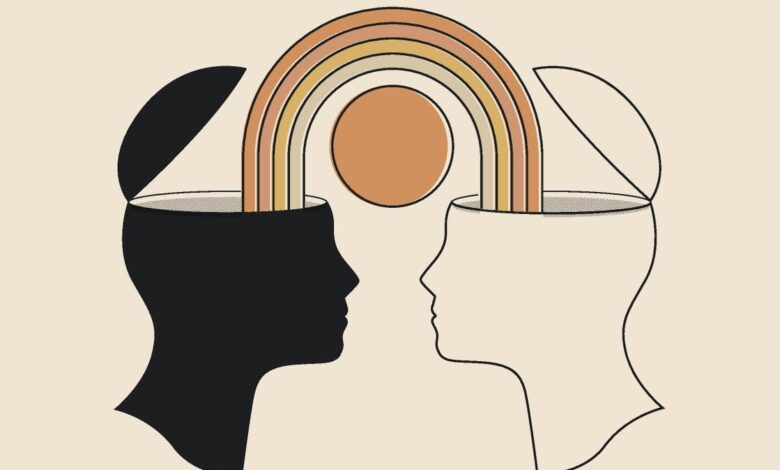A Psychologist Uncovers The Singular Core Of Every Successful Marriage

📝 usncan Note: A Psychologist Uncovers The Singular Core Of Every Successful Marriage
Disclaimer: This content has been prepared based on currently trending topics to increase your awareness.
Divorce rarely emerges from a single event. It is more often the consequence of misaligned internal compasses. Here’s what makes a marriage last, instead.
getty
When we think about why marriages end, certain reasons strike us immediately — the same old unfortunate events of infidelity, endless arguments, financial strain or differences that are irreconcilable. These are certainly valid and consequential factors, but according to recent research, the story runs deeper. Our values shape much of our marital stability over and above the surface issues of everyday crises.
To refresh our understanding of “values” — they are the enduring beliefs we hold about what is important in life. They guide our choices, and shape how we interpret events by acting as an internal compass in moments of dilemma.
Unlike moods or preferences, values form early on in life, and remain relatively stable. In marriage, they become especially important because commitment inevitably requires couples to navigate the unchartered territory between personal desires and shared relational responsibilities.
A January 2025 study published in Communications Psychology offers evidence supporting this idea. Spanning across 55 countries, the research examined how cultural and personal values predict attitudes toward divorce. The findings suggest that divorce is not only a matter of interpersonal conflict, but also of deeper alignments (or misalignments) between what individuals and cultures prioritize.
So, love may kickstart a relationship, but it is shared values that determine whether and how long it will endure. Here are some points to ponder over based on the insights from this emerging research.
1. Does Forever Mean The Same Thing To Both Of You?
Every culture carries assumptions about what marriage is supposed to represent. For some, marriage is a binding commitment to preserve family stability, uphold traditions and maintain social order. For others, marriage is a partnership, a relationship grounded in love and fulfillment, which can be renegotiated or even ended if it no longer serves its participants.
These orientations reflect broader psychological value systems:
- Individuals who emphasize “conservation values” rooted in tradition, conformity and stability, tend to view marriage as a lifelong duty. From their standpoint, divorce represents a breakdown not only of a personal relationship but of a social or even moral obligation.
- By contrast, individuals who emphasize “openness to change,” marked by self-direction, novelty and personal growth see marriage as one chapter in a larger story of identity. For them, divorce may be understood not as failure, but as adaptation.
The 2025 study confirms these patterns. Cultures that prize autonomy and individual freedom reported higher divorce rates, while cultures that prize embeddedness and social conformity reported lower ones. Neither orientation is inherently better or worse. Both have their adaptive functions.
Autonomy allows people to leave unhealthy relationships and pursue self-actualization. Embeddedness, on the other hand, preserves family cohesion and reduces disruption to social networks. But when two people within a marriage hold opposing orientations, one committed to tradition, the other to personal growth, friction is inevitable.
If you, for example, believe “marriage means sticking together no matter what,” while your partner believes “marriage should help both people thrive, and if it doesn’t, leaving is reasonable” — what does it say about your marriage? That there is a fundamental difference in your philosophies.
Disagreements about daily routines or financial management can usually be negotiated. But when partners disagree on the very definition of commitment, every conflict is filtered through incompatible lenses. This helps clarify the confusion about why some couples appear to separate “out of nowhere.” Because these “invisibles” were not non-existent, they were just rooted in silent and difficult-to-alter values.
2. How Do You Deal With The ‘Security Paradox’?
The other striking finding of the 2025 study is the “security paradox.” Conventional wisdom assumes that people who value security of varying kinds such as financial, emotional or social, will be more likely to remain in marriages.
Stability and predictability, after all, are hallmarks of long-term commitment. Not surprisingly, the study did confirm that individuals with strong conservation values often resist divorce, because we all love to maintain a steady life course.
However, the researchers also identified an important exception. For some, the very pursuit of security can become the “motivating force” behind divorce. Put simply, when a marriage threatens one’s sense of safety through financial instability, emotional neglect or even abuse, leaving becomes the most rational path to regaining stability. In such cases, divorce becomes a way to reclaim one’s safety.
This nuance cannot be ignored, because it complicates the simplistic assumption that valuing security necessarily means preserving the status quo. For example, a person may stay in an unhappy marriage to avoid social stigma or financial hardship, prioritizing external stability. Another person, equally concerned with security, may leave the same kind of marriage if they believe that their children’s well-being or their own mental health depends on it.
This is a classic dynamic interplay between short-term and long-term security. Staying in a marriage may preserve immediate stability, sure, but undermine long-term security if the relationship is harmful. Conversely, divorce may cause short-term upheaval but secure long-term safety and growth.
Understanding the security paradox helps us understand why divorce decisions can appear contradictory to outsiders. Two individuals may face similar circumstances but arrive at opposite conclusions, not because one values security and the other does not, but because they interpret what security requires in fundamentally different ways.
But Why Do Shared Values Outweigh Love Alone?
Pop culture and literature emphasize passion, chemistry and emotional intensity as markers of lasting bonds. While love is undeniably important, the research in focus clearly suggests it’s rarely sufficient by itself. Shared values provide the scaffolding that supports love when the inevitable strains of life arise.
Values shape how couples make decisions about anything and everything, starting with money, to parenting, to intimacy and even leisure. If partners fundamentally disagree about what matters most, the same old debate surrounding autonomy versus tradition, growth versus stability or pleasure versus duty takes over. Then, even deep affection can diminish under the weight of misaligned expectations.
Discussing values, therefore, should not be an afterthought. Many people enter relationships assuming that love will smooth over differences in worldview. Yet, as research demonstrates, these differences often resurface later, more entrenched and more difficult to reconcile.
This does not mean that couples must share identical values. What matters is awareness of and respect for each other’s values. A couple with differing individual values can still thrive together if they acknowledge their differences and negotiate shared meanings. To do so, try this exercise:
Instead of asking only “Do we love each other enough?” you might also want to ask:
- Do we share a vision of what marriage means?
- How do we each define security, and what sacrifices are we willing to make for it?
- Where do our values align, and where do they diverge?
Such conversations are not always easy; in fact, not easy at all. But they are essential. They prepare you to weather unseen yet inevitable storms in your relationship, and make it to the other side.
Is your marriage based only on love or shared values? Take the science-backed Relationship Satisfaction Scale to learn where it stands.




